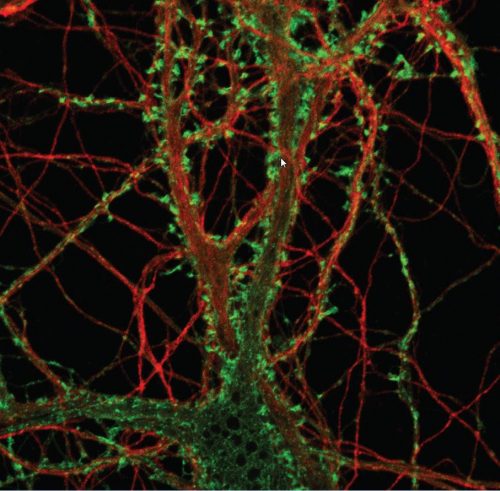Sleep is one of our most important bodily functions. In its absence, we experience cognitive disruption, depression, and other chronic symptoms. How does evolution explain our need for sleep? Some theories suggest sleep plays a role in energy restoration and information consolidation. Many studies focus on the synaptic homeostasis hypothesis, which says that during sleep, the brain decreases the strength of brain cell connections to counteract the increase that occurs during wakeful brain activity, promoting balance and efficiency in the brain.
Synaptic downscaling, or the weakening of brain cell connections, opposes upscaling, the strengthening of neuronal connections made as we learn. László Acsády from the Institute of Experimental Medicine of the Hungarian Academy of Sciences is an expert on the homeostasis hypothesis, and he explains why downscaling is necessary. “Memory and information systems may break down because of the overload of neuronal actions,” Acsády said. “In conditions of continually strengthening neurons, the brain would soon become epileptic.” Thus, downscaling prevents damage to the brain and saves energy and space.
So why exactly do we need sleep for downscaling to occur? During wakeful learning, neuronal processes increase in size. In contrast, sleep prevents learning, so upscaled neurons can be downscaled in appropriate proportions to achieve homeostasis. This promotes memory and removes unneeded connections in the brain.

